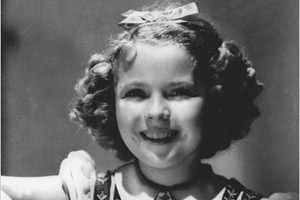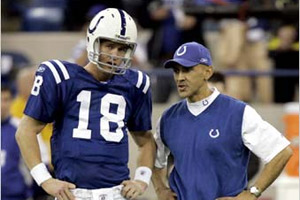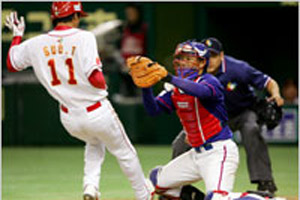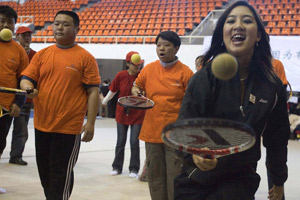Focus on America
History of Actors in U.S. Politics Goes Back Decades

They have not all achieved the spectacular success attained by the late President Ronald Reagan or current California Governor Arnold Schwarzenegger, but many American actors have followed the path from stage and screen to political office for decades.
The line stretches back at least as far as Helen Gahagan Douglas, a 1920s Broadway actress who starred in the 1935 movie She. Entering politics as a liberal Democrat, she was elected in 1944 to the first of three terms in the U.S. House of Representatives.
Gahagan Douglas ran for the Senate in 1950 against Republican Congressman Richard Nixon. In what her supporters decried as a smear campaign, Nixon accused her of Communist sympathies. He had used similar tactics in wresting his House seat from former Representative Jerry Voorhis and launching a career that would lead Nixon to the presidency.
Referring to Gahagan Douglas as “the Pink Lady,” Nixon said she was “pink right down to her underwear.” In return, she derided him as “Tricky Dick,” a nickname that endured throughout his life. But Nixon won the election decisively, ending Gahagan Douglas career in electoral politics.
ACTING SKILLS NO GUARANTEE OF POLITICAL SUCCESS
Zelda Fichandler, chair of the graduate acting program at New York University, sees actors having a “natural affinity” for politics, and said even non-actors who run for office must acquire certain stage skills to be successful.
“I can tell that Hillary [Clinton] gets lessons in how to exhibit different aspects of her persona,” Fichandler told USINFO. “Her voice has changed; her public manner is more open and more expansive and more embracing than it used to be. She’s getting critiqued, and she’s being helped.”
But Shannon Jackson, chairwoman of the Department of Theater, Dance and Performance Studies at the University of California, Berkeley, told the New York Times that acting training does not guarantee political success.
“There’s the expectation that if you’re a performer, you’ll be good at any kind of performance, but that’s not true,” she said. “Certain performers are used to having scripts that they can practice and rehearse. They find challenges when they don’t have a script, or the required script changes and they have to improvise.”
Perhaps the most famous star to fail in a bid for political office was Shirley Temple.
Former child star Shirley Temple ran for Congress in 1967 but was defeated in the primary election. (© AP Images)
Former child star Shirley Temple ran for Congress in 1967 but was defeated in the primary election. (© AP Images) A child actress in the 1930s who ranked for four straight years as the top-grossing box office star in America, Temple continued to make movies throughout the 1940s.
In 1967, the actress, now Shirley Temple Black, sought the Republican nomination to replace the late California Congressman Arthur Younger. She ran on a platform that supported U.S. involvement in the Vietnam War, but was beaten by war opponent Pete McCloskey.
Though unsuccessful in electoral politics, Black was appointed a U.N. delegate by President Nixon in 1969, later served as U.S. ambassador to Ghana and to Czechoslovakia, and became the State Department’s first woman chief of protocol.
Clint Eastwood, who achieved acting fame as “Dirty Harry” in a series of 1970s and 1980s films and later became a top director, ran successfully for a single term as mayor of Carmel, California, in 1986.
Other actors have started their political endeavors with more humorous roots.
FROM COMEDY TO CONGRESS?
At least three television comedy stars moved into congressional careers in the late 1980s and early 1990s.
Fred Grandy, who played the ship’s purser, “Gopher” Smith, on the Love Boat, won the first of four terms as a Republican congressman from Iowa in 1986. He candidly acknowledged to People magazine, “If there were no Gopher, there would be no Fred Grandy for Congress.”
Ben Jones, known as Cooter Davenport on the Dukes of Hazzard, served two terms as a Democrat from Georgia starting in 1988. Defeated for re-election in 1992, he returned to acting. In an unusual twist, he tried but failed to make an electoral comeback from another state, Virginia, in 2002.
Perhaps the most famous of the trio, Sonny Bono, was elected as a Republican from California in 1994 after a career as an actor, singer and record producer that peaked with a popular 1970s television variety show, The Sonny and Cher Show. Bono died in a skiing accident during his second term.
Comedian Pat Paulsen turned fame achieved on television’s Smothers Brothers Show into a satirical presidential campaign as a write-in candidate in 1968, using the slogan, “Just a common, ordinary, simple savior of America’s destiny.”
More recently, satirist Stephen Colbert, host of The Colbert Report, mounted a tongue-in-cheek campaign for the 2008 presidential nomination. Colbert announced in October a candidacy limited to his home state of South Carolina. The state’s Democratic Party executive council rejected his bid to get on the ballot, saying he was neither a serious nor a viable candidate. Colbert abandoned plans to file also as a Republican because of the $35,000 fee, so his presidential bid seems over.
Recently on Focus on America
Super Bowl Breaks Ground with First Black Coaches
 Even though the winner of Super Bowl 41 will not be decided until February 4 in Miami, one result is already in: the victorious head coach of American professional football’s championship game will be African American.
Even though the winner of Super Bowl 41 will not be decided until February 4 in Miami, one result is already in: the victorious head coach of American professional football’s championship game will be African American.
First Chinese Baseball Players Signed To Play in United States
 A new era in baseball may be beginning with the signing by the New York Yankees and Seattle Mariners of four Chinese players to major league contracts.
A new era in baseball may be beginning with the signing by the New York Yankees and Seattle Mariners of four Chinese players to major league contracts.
Athletes, Artists, Governments Cooperate on Causes
 Promoting effective conflict resolution, alleviating poverty, helping refugees and preventing wildlife trafficking require unique partnerships among government leaders, nongovernmental groups, artists and athletes to reach diverse audiences effectively.
Promoting effective conflict resolution, alleviating poverty, helping refugees and preventing wildlife trafficking require unique partnerships among government leaders, nongovernmental groups, artists and athletes to reach diverse audiences effectively.